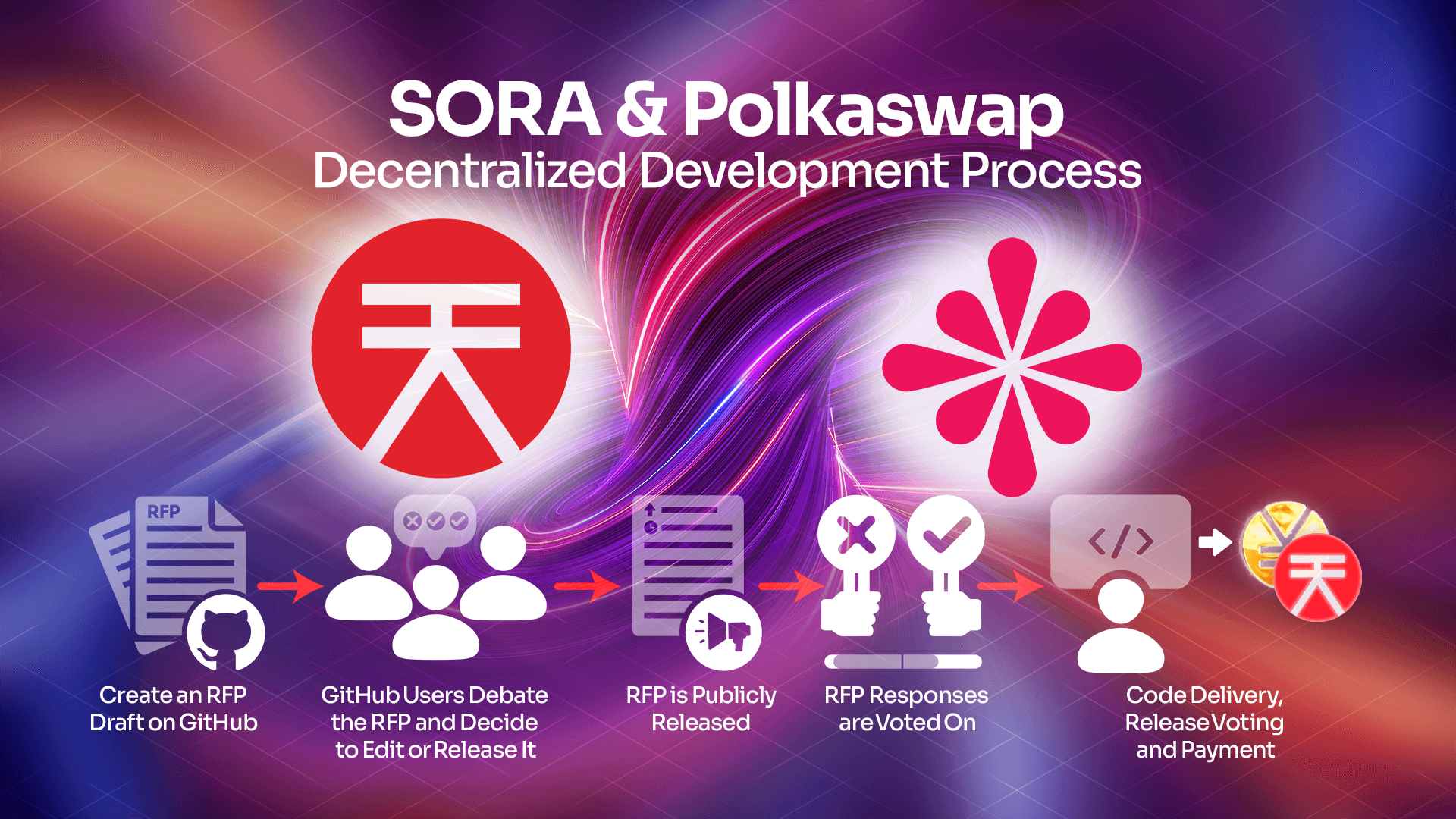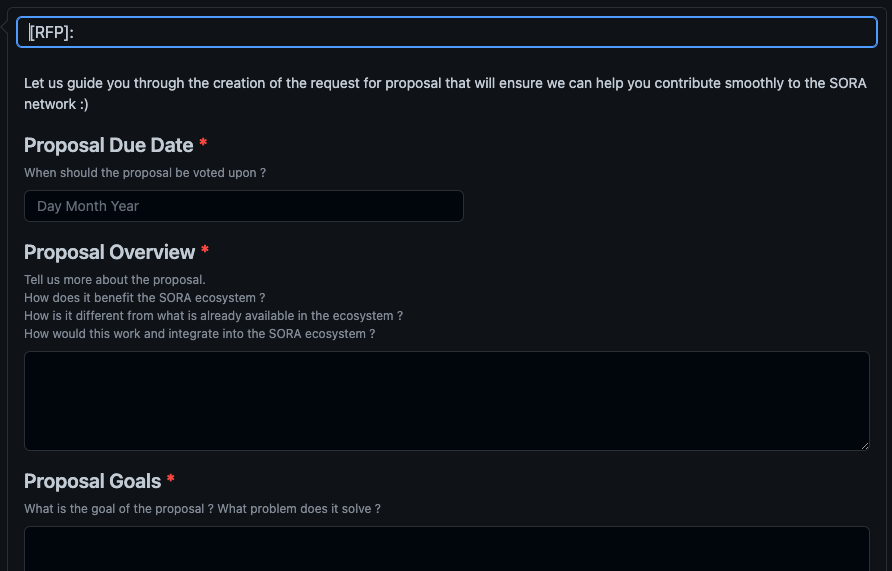How To RFP, Proposing New Functionalities to Polkaswap and the SORA network
TL;DR
By submitting Request for Proposals (RFP), users can tender the development and implementations of functions they would like to have in Polkaswap and the SORA network
Because SORA is decentralized, anyone can participate in the sustainable development process by submitting an RFP for the community to veto
The RFP process is quick and inclusive, even for those with little technical knowledge

Normally, within centralized projects, the community would pressure the team of developers by constantly asking wen, wen, wen. This in turn would serve as a guide for said team to orient their development process based on the community’s needs and desires (aligned with their own agenda).
In a fully decentralized project, the community has the privilege and responsibility to contribute to the continued development and improvement by submitting their proposals and subjecting them to community debate to weigh the advantages and benefits of such implementations. As the SORA network and Polkaswap are fully decentralized, all community members can submit their own RFP for consideration following a series of simple steps.
Contributing to the Decentralized Development Process
As of July 2021, the SORA and Polkaswap Decentralized Development Process has been open to submissions from the community to propose, in a non-technical manner, changes that they would like to see implemented (whether they are picked up and coded is another matter). There is another aspect, however, teams of developers that have the expertise to implement these changes themselves can also propose them, and if approved, their code could be incorporated into a runtime upgrade and they would also get rewarded for the work provided.

Updated SORA and Polkaswap Decentralised Development Tutorial
For those who are not experienced in GitHub, but consider that their (non-spam) submission could be valuable, here is a quick walkthrough to get you started:
The RFP format requirements outlined within the walkthrough apply to all contributors.
- To make the process easier and more accessible, RFP will now be submitted as GitHub issues
- The issue template has the same fields as the RFP so the content doesn't change
- Once these issues have been discussed and achieved consensus, they will be made proposals
During the August 24th Ecosystem Updates, we mentioned that the RFP process was receiving an overhaul that would make it easier and more intuitive for users to submit their proposals, as well as for developers to work on them and the community to provide opinions and feedback on these proposals. As the ecosystem updates are constantly changing, here is the announcement and walkthrough for you to follow.
RFP Process Update
Updates from the Decentralised Development Programme have been quiet recently, both in terms of community submissions as well as programme improvement and optimisation and we are happy to announce that a lot of work has been going on behind the scenes to improve and ease the experience for the community submitting their proposals, and the developers working on and implementing them.
As the SORA Integrated Plan was recently released, we thought that a way to make the experience of using GitHub less mystical and more in tune with improvement submission systems that users are more comfortable with, therefore, we have implemented RFP as issues.
This means that instead of opening a PR, you can now submit an issue that has the same fields as those needed to submit an RFP! Who hasn’t opened a complaint request or submitted a ticket to a customer service portal? OK, granted there are people who haven’t, there are also a lot of people who have, certainly more than the number of people who have branched a repository and submitted a pull request.
RFP Walkthrough
We hope this sounds interesting and to motivate you further to submit a request or comment on one, here is a quick walkthrough on how to do it;
Navigate to https://github.com/sora-xor/rfps/issues
Start a New issue, then hit Get started.

- Fill in all the fields as you would when submitting an RFP, each field will now have hints as to what to add, in case you get stuck in any of the steps!

Once you are done filling in the fields, hit Submit new issue and then stay tuned for any comments or concerns that may be raised!
As a community member who is attentively watching the proposals being made and is interested in the network development and improvement, you can provide your feedback, ask questions and leave comments directly under the issue.

As for the developers involved, they will have the option to close the issue once they have addressed and included it, otherwise the option to reject the proposal if it is outside the scope of development or not accepted by the community.
Next Steps
After creating an RFP using this new process, you can follow it’s progress in the issue section, where other users and developers will be able to discuss implementations and progress conveniently and easily, as well as mark the proposal as complete once it has been successfully worked on!

We hope this will motivate you to add your proposals for development and we look forward to all the interesting ideas you, as valuable community and important part of this project, submit in the best interest of the network and its users.
We will continue to fine-tune this process and update the SORA Decentralised Development guide. Please let us know your thoughts about these improvements in the SORA network community chats on Telegram!